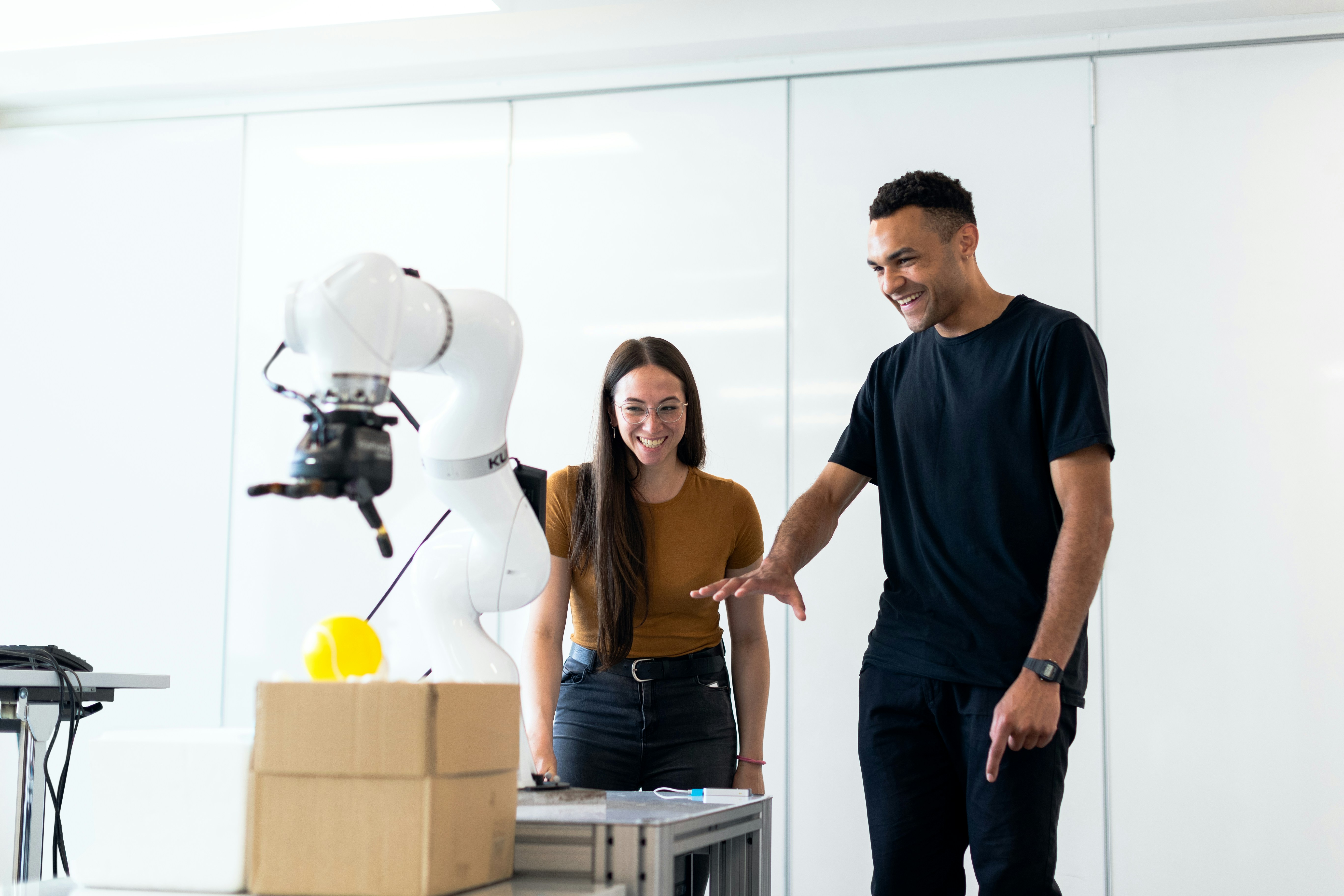Introduction
Saab UK is part of Scandinavia's largest defence company, bringing together the best of Swedish and British innovation. Saab offers world-leading solutions and services in defence, aviation, space, and civil security to keep people and society safe. Our UK presence has been growing at pace, meaning we can offer a wide range of opportunities for personal fulfilment and career growth. We currently employ over 600 people across eight sites in the UK, and our specialisations include software engineering, underwater robotics, radars, AI, and armed forces training.
As part of the global entity Saab AB, Saab UK combines the innovative spirit of a start-up with the resources and expertise of a larger corporation. Globally, Saab employs over 24,000 people, with operations on every continent. Our partnerships with UK customers and industry mean we are able to deliver innovative solutions to complex challenges, anticipating the threats of tomorrow. We invest 23% of our annual revenue into research and development, collaborating with a range of partners including industry and academia.
Saab is a company that offers our employees plenty of opportunities for growth and advancement. We embrace diversity and are committed to providing a workplace where individuals can thrive professionally, paving the way for future progression. We also recognise the need for a healthy work-life balance to ensure our staff have the chance to live a fulfilling life beyond the workplace.
The Role:
This role is part of our Saab Seaeye Business Unit in Fareham.
The role will aim to provide Production Engineering support for the final assembly and testing of remotely operated vehicles and systems, with a focus on clear, standardised process documentation. In addition, ensure appropriate production processes, equipment, and facilities are in place to safely and consistently manufacture products to meet cost, time, and quality requirements.
Key Responsibilities:
Conduct an analysis of current SOPs in the integration department to identify gaps, outdated procedures and areas for improvement.
Standardise process and procedures across the department to ensure consistency, reduce variation, and enhance cross-departmental collaboration.
Own, document and train others on manufacturing process and standards.
Attend SQCDP meetings and support a hands-on problem solving approach with Area Team Leader and Quality Engineering to achieve OTD and right first time objectives.
Assess compliance and adhere to safety/quality standards.
Providing technical support for production and production control.
Developing, optimising and implementing factory floor layouts/production cells.
Analyse data to drive continuous improvement of processes and workflows.
Skills and Experience:
Multi-disciplined senior engineer with an electrical bias and experience in test, pre-commissioning, and fault finding.
Background in low-volume, one-off engineered products and systems; ideal for Production, Project, or Delivery Engineers.
Strong mechanical, electrical, and systems engineering knowledge, especially for complex assemblies like ROVs.
Troubleshooting: Technical problem-solving skills to diagnose and resolve production issues.
Minimum qualifications HNC/HND, Bachelor's degree or relevant experience preferably in Electrical, Mechanical, Engineering, Industrial Engineering, Manufacturing Engineering, or a related field.
Hands-on production support experience in assembly, testing, and quality control.
Relevant certifications (e.g., Lean Manufacturing, Six Sigma Green Belt) are a plus; familiarity with hydraulics is also beneficial. Support and training is available for Working with Electrics, High Voltages, and Hydraulics.
By submitting an application to Saab UK you consent to undertaking workforce screening activities that may include but are not limited to: Baseline Personnel Security checks, National Security Vetting, reference checks, verification of working rights and in all circumstances preferred candidates will be placed through a security interview


